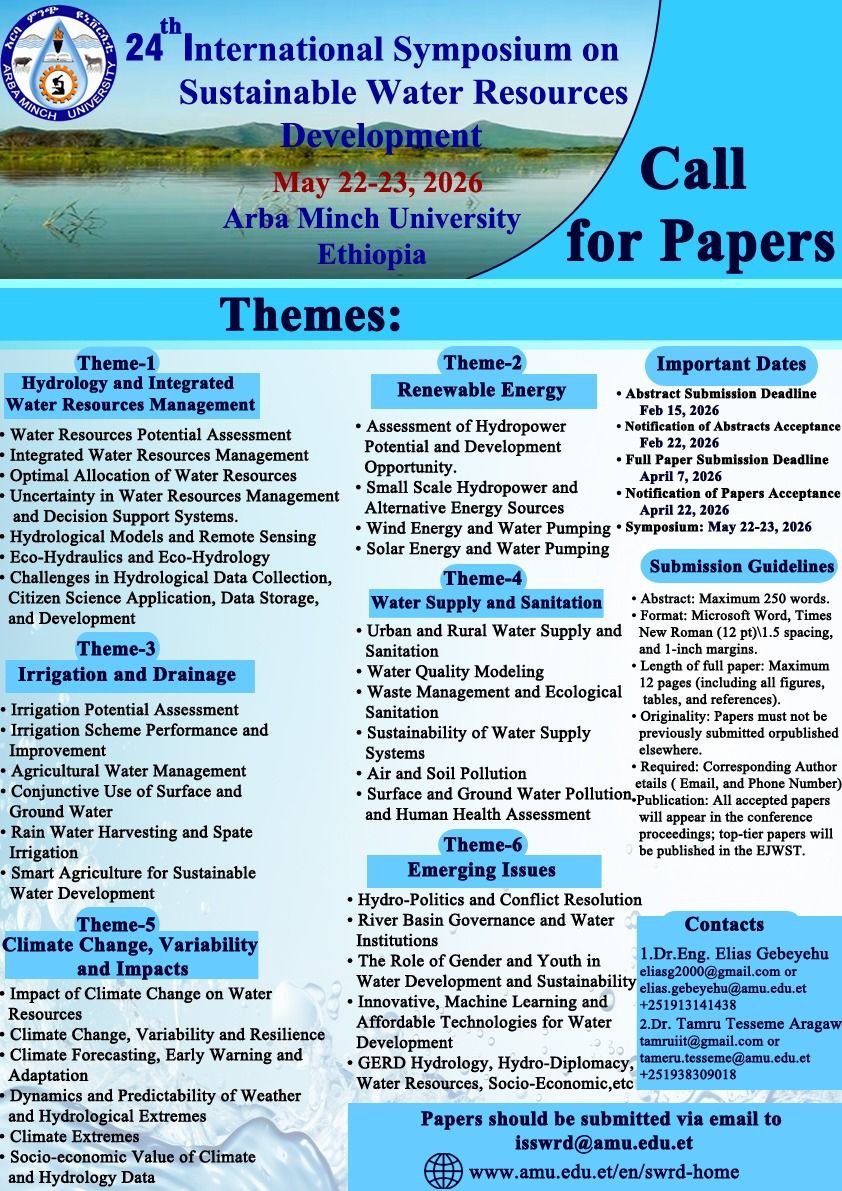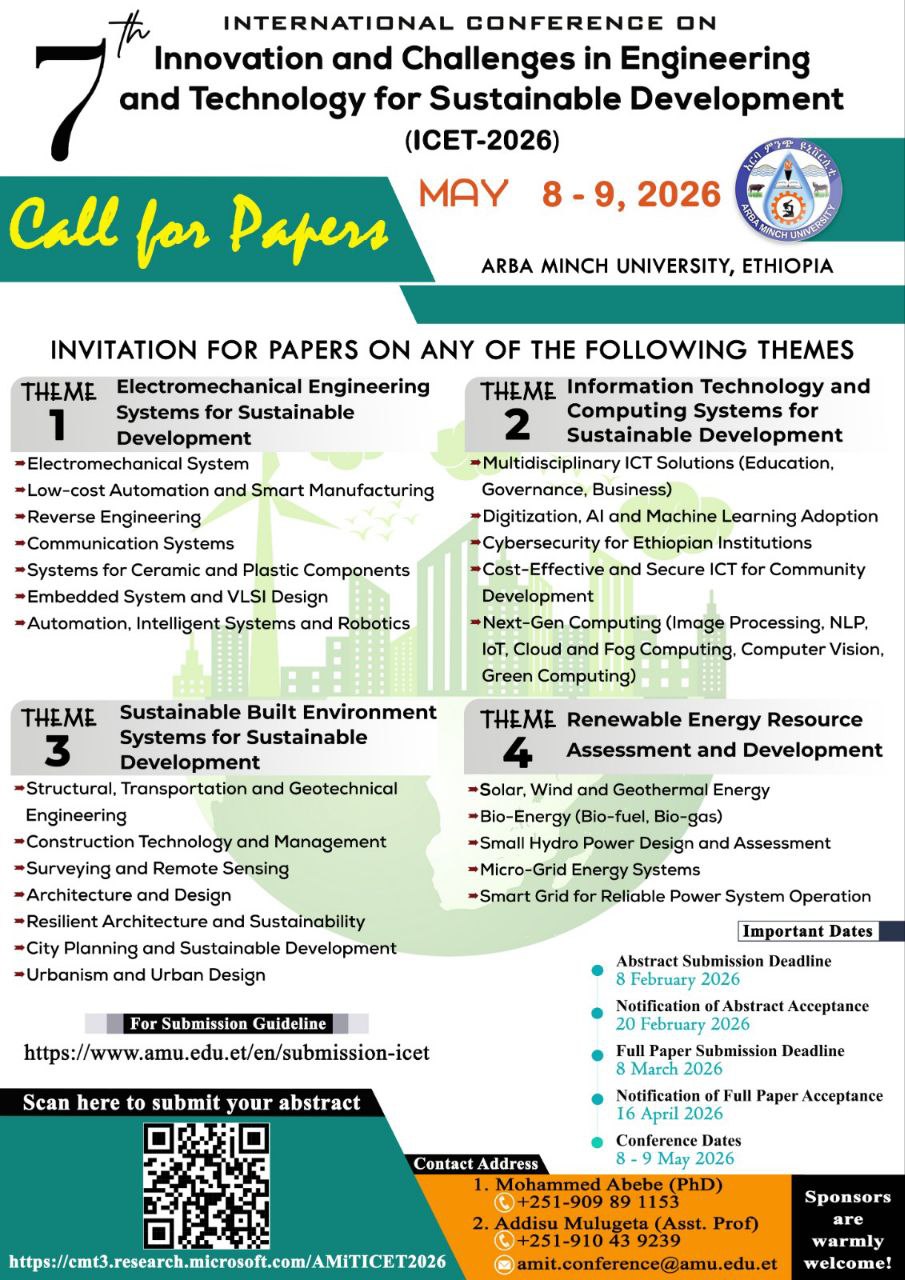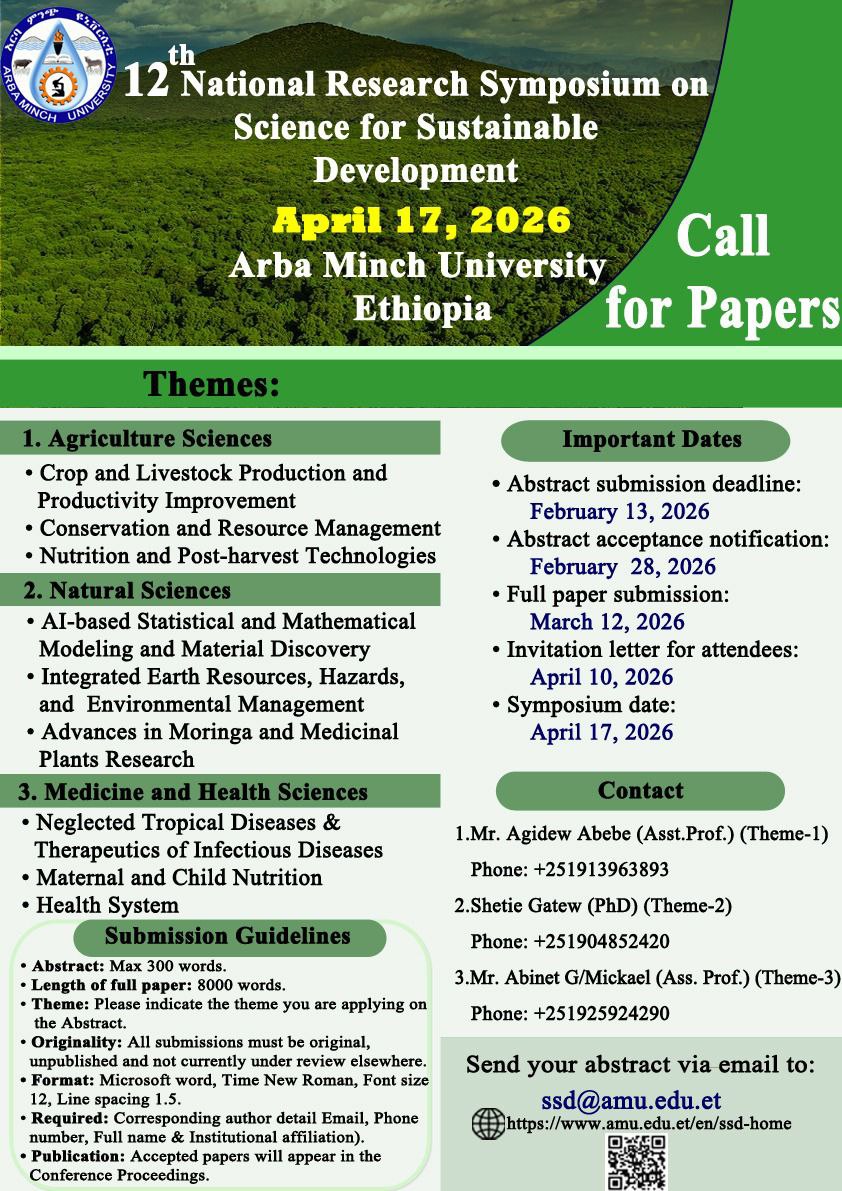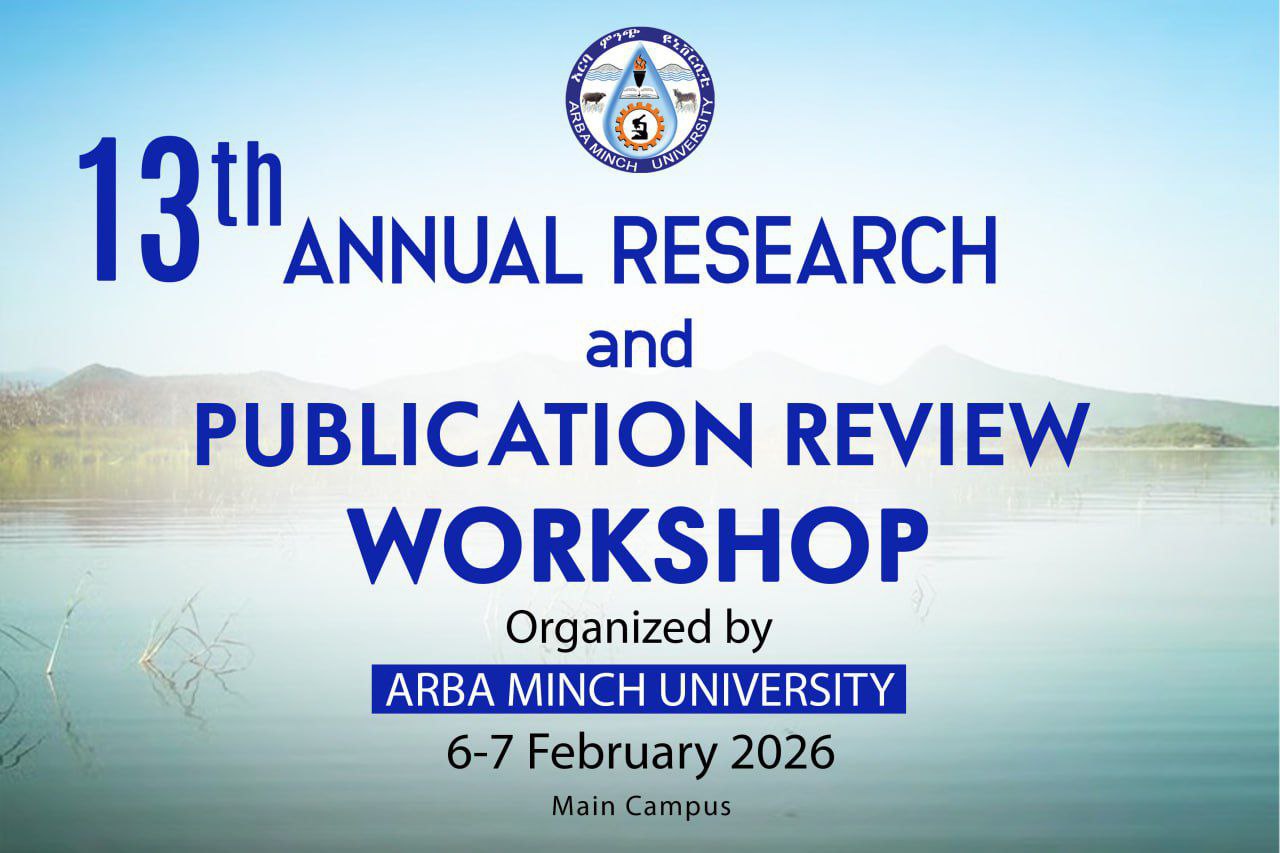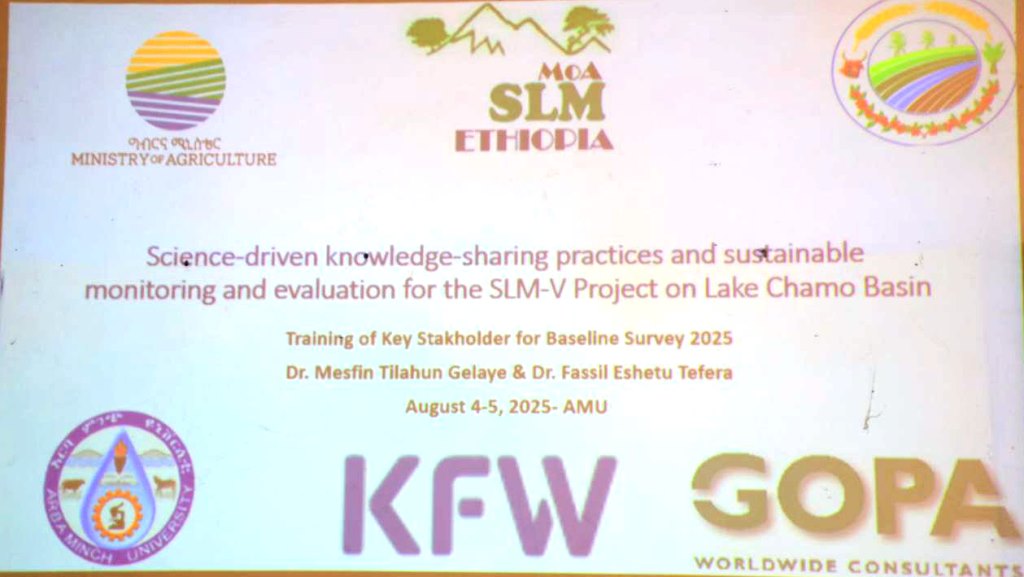Arba Minch University (AMU) has successfully launched an inception workshop and a major training for the new German Development Bank (KfW) - Ministry of Agriculture (MoA) Sustainable Land Management (SLM-V) Project, from August 4-5, 2025. This landmark initiative is funded by KfW with €25 million grant and is being implemented by MoA across 10 woredas in the Lake Chamo watershed. Click here to see more photos.
KfW-MoA SLM-V project is a project based and catalyzed by the PhD dissertation groundbreaking research result of Fassil Eshetu (PhD), from AMU. Among two pivotal paper publications of his PhD dissertation, “A Call to Action for the Strong Long-Term Limnological Changes and Food Chains Structures Analysis of the two largest Ethiopian Rift Valley lakes, Abaya and Chamo” scientifically established the urgent need for intervention by reconstructing the food chains of both lakes especially to save Lake Chamo's ecosystem which was still relatively intact though it was on the brink of similar degradation. This scientific evidence formed the basis of the "Call to Action" that captured the attention of local, national and international partners. Critical advocacy and vision of Dr. Ueli Mueller, the then Head of GIZ’s Biodiversity and Forest Program (BFP) in 2018, was instrumental in connecting AMU’s research with international development partners like KfW.
94% of the project budget will be administered by the MoA for direct implementation in the 10 woredas and the remaining 6% is allocated to AMU to fulfill its mandate of generating the scientific data that will serve as the foundation for the project's impact assessment and to procure state-of-the-art water quality and hydrometeorological scientific instruments. The collaboration marks a significant step forward in bridging the gap between scientific research and development policy showcasing AMU’s commitment to leveraging its expertise in service of the community and environment.
Teklu Wegayehu (PhD), Vice President for AMU Research and Cooperation, said, AMU is immensely proud to serve as the lead scientific partner in the KfW-funded Sustainable Land Management Project. This initiative, landmark collaboration with the MoA and international partners, represents a milestone in our commitment to leveraging academic excellence for the betterment of our region, he noted. Giving further lowdown on it, Dr. Teklu said, this project is a direct embodiment of our university's core mission: to be a solutions-oriented institution that translates rigorous research into tangible, positive outcomes for our communities and environment. According to him, this collaboration sets a new standard for how Ethiopian universities can drive sustainable development; AMU is also fully committed to shoulder the responsibility and confident to make the project serve as a model for future evidence-based conservation efforts across the nation, .
Regarding what makes AMU’s involvement in the project unique; Dr. Teklu explained that it is the shift towards a pioneering, evidence-based approach centered on ecosystem evaluation. Furthermore, this initiative strengthens our strategic partnership with key governmental bodies like the MoA and esteemed international partners such as KfW; the project will significantly enhance our institutional capacity through the acquisition of state-of-the-art scientific instruments and by providing invaluable experience for our researchers and students, he said.
Fassil Eshetu (PhD), the KfW Project Coordinator at AMU, said that our primary responsibility is to provide the scientific evidence of the project's impact while an independent organization will conduct the official monitoring and evaluation of the project. Our role at AMU is to generate the comprehensive baseline data in the first year and then track the ecological and livelihood changes annually even beyond the project’s lifecycle, Dr. Fassil noted. He also gratefully appreciated VLIR-UOS Team Projects, STRIPES Initiative, for its support on his PhD Dissertation, Hailemariam and Roman Foundation (HRF) for lobbying government officials for clear understanding of SLM-V Project, KfW and MoA for entrusting AMU for this scientific task and giving chance of building a robust, data-driven understanding of how these interventions heal our ecosystem.
Over 60 trainees including focal persons from 10 project woredas, development agents from 23 selected micro-watersheds, newly recruited data collectors, and university researchers participated in the inception workshop and major training, he said. With the active participation of the local experts and GOPA Worldwide Consultants, the international consultant assigned by KfW and MoA, identified crucial sampling points for data collection during the session, Dr. Fassil informed. According him, immediately following the training, a pre-test was conducted and intensive fieldwork commenced. Biophysical, household survey and GIS teams are already deployed across the challenging terrains of the Gamo highlands to collect baseline data; concurrently, the eco-hydrology, hydrometeorology, and water quality teams have finalized the sites for installing advanced monitoring equipment which is currently in the international procurement process, Dr. Fassil explained.
Concerning the involvement of Mesfin Tilahun Gelaye (PhD), one of Ethiopia’s foremost environmental economists with a distinguished global reputation for his work in the field, as the Project Advisor for the initiative particularly makes the most innovative aspect of our scientific mandate, the evaluation of ecosystem services, crucial, Dr. Fassil underscored. He further said that having an advisor of his caliber lends immense scientific credibility to the project and solidifies AMU’s commitment to a truly evidence-based approach to monitoring and evaluation. In addition, Dr. Mesfin’s expertise will guide our team in the complex process of translating the ecological improvements we measure: reduced soil erosion, improved water quality, and enhanced biodiversity into quantifiable economic terms, Dr. Fassil hopped. This process of placing a monetary value on the positive environmental changes is essential and will move our analysis beyond purely ecological metrics and demonstrate the tangible economic return on investment from sustainable land management, he expressed.
For more Information Follow us on:-
Website - https://www.amu.edu.et/
Telegram - https://t.me/arbaminch_university
Facebook - https://www.facebook.com/ArbaMinchUniversityccd/
YouTube - https://www.youtube.com/channel/UCOO_nclhMo8M3r74OyPBlVA
Public and International Relations Executive


